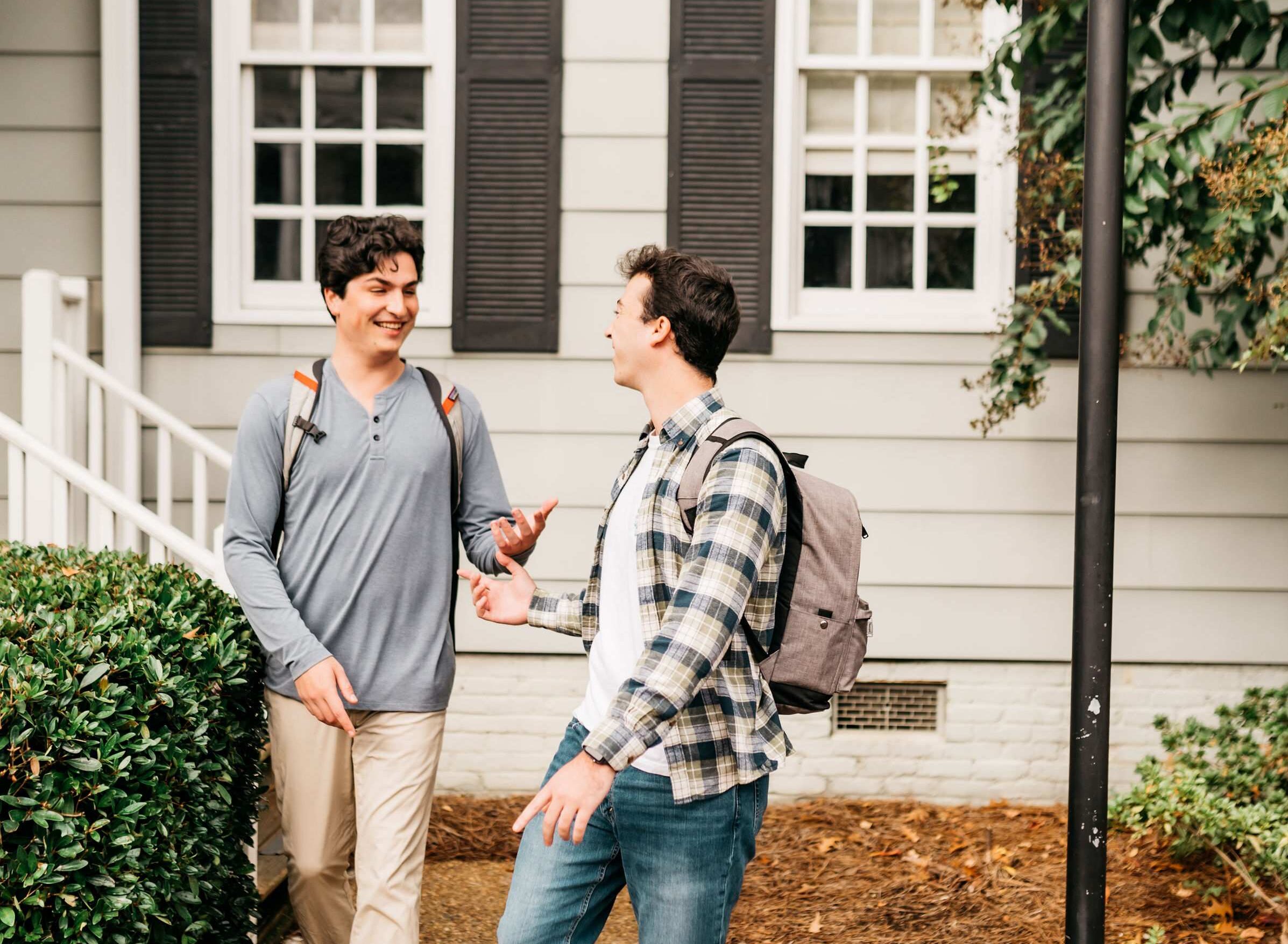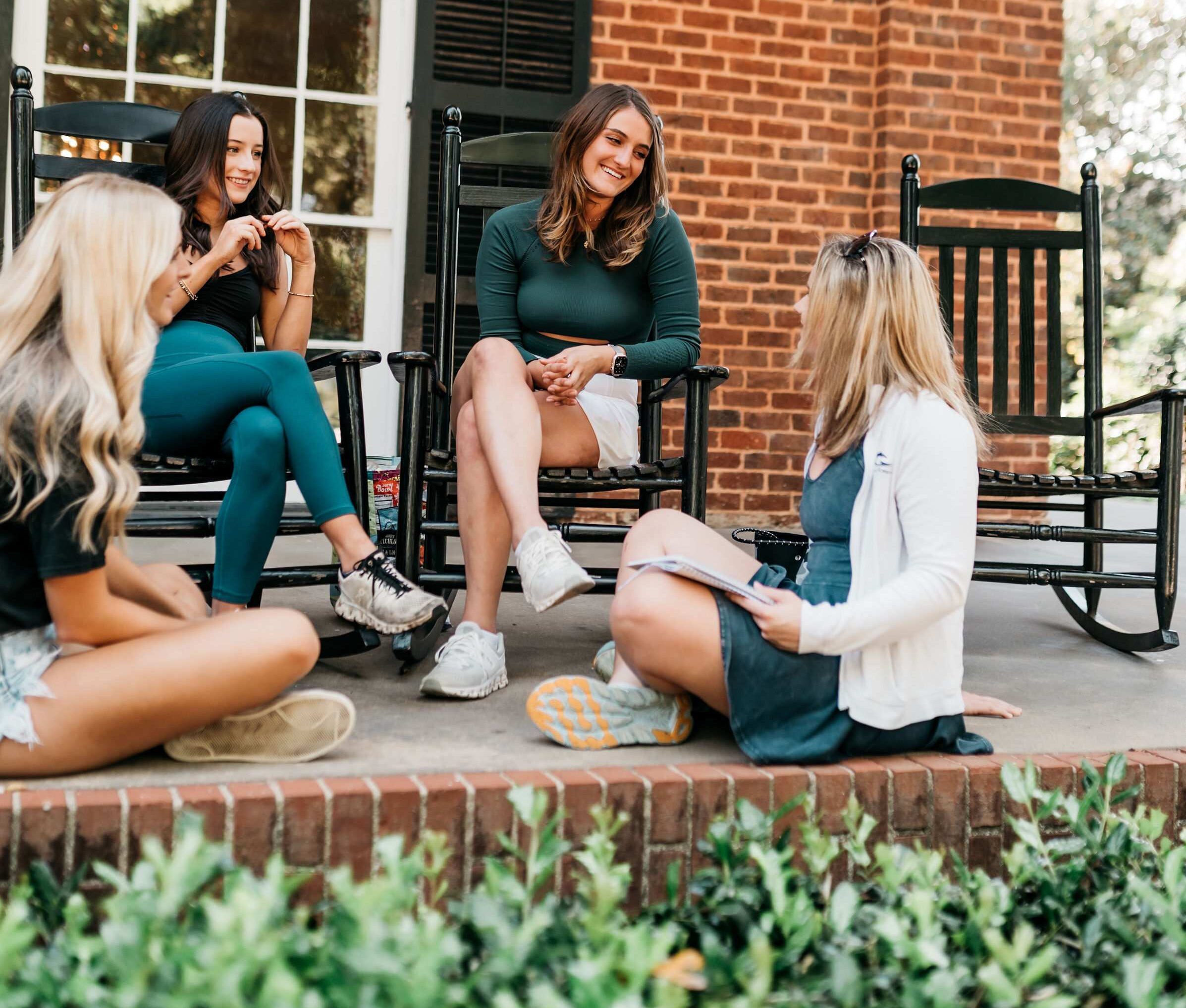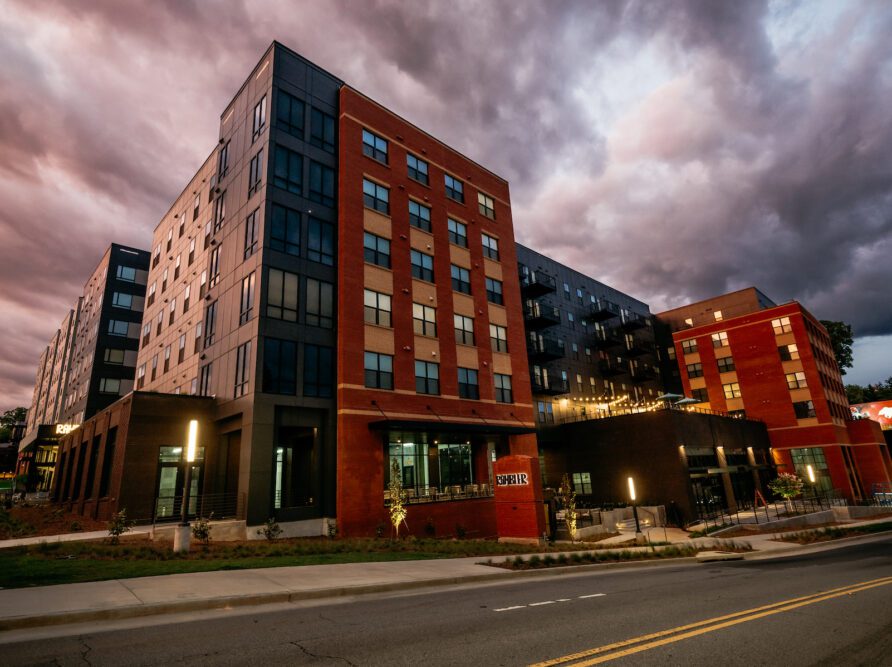Are you a student planning to live in an off-campus apartment near the University of Georgia? When touring apartments in Athens, it can be difficult to find a complex that checks all of your boxes.
Read Next: Ultimate Guide to Living Off-Campus for UGA Students
From amenities and floor plans to budget and location, UGA students have many factors to consider during their housing search. At Rambler, we have helped hundreds of students find the perfect living situation that suits all of their needs, and we understand that it can be stressful.
@ramblerathens Are you asking the right questions before you sign your lease? Here are 5 questions to ask on your next tour!!💭 #uga #godawgs #uga25 #uga26 ♬ original sound – Rambler
Read Next: How Much Does it Cost to Live Near the University of Georgia?
To help you find the perfect home for your lifestyle, we have compiled a list of 15 questions that are important to ask when deciding whether or not to sign a lease at a student housing apartment near the University of Georgia!

Many students are first-time renters, so it’s important to ask the right questions on an apartment tour before signing a lease.
15 Questions You Should Ask On A Student Apartment Tour
1. What are my lease terms?
Leases can be lengthy documents and seem very overwhelming, so it’s important to clarify the specifics of your lease. In addition to knowing what dates your term begins and ends, you also may want to ask about other common lease terms that might not initially come to mind. These terms may include:
- Quiet hours
- Restrictions on putting holes in the wall (hanging pictures or shelves)
- Subleasing policy
- Pet policy
- Late fee policy
- Parking accommodations
- Additional expenses
2. What expenses are due upon application, lease signing and move-in?
Most apartment complexes will have immediate costs associated with signing a lease before you even move in. You will usually be required to pay a non-refundable reservation deposit in order to hold your lease spot. There are costs associated with applying, signing, and moving in, so it’s important you know what and when you will be charged.
Some costs due upon application:
- Application fee
- Administration fee
Some costs due upon signing a lease:
- Pet deposit, if applicable (usually refundable)
- Security deposit (refundable)
Some costs due upon move-in:
- Other move-in fees
- Elevator fees and deposits
- Utility setup fee (one-time)
3. What does my monthly rental rate consist of?
As first-time renters, many college students aren’t always clear about what is included in the monthly rental rate. Some costs like utilities aren’t typically included, while other costs like landscaping and trash are usually included in your monthly rental rate. To make sure you understand what costs you will be responsible for in addition to your base rent, it’s important to ask the leasing office exactly what’s included in your monthly rate.
A few costs to consider include:
- Utilities: Utilities are typically a separate monthly cost. While these usually include electricity, water, and gas bills, you should clarify which utilities tenants are responsible for.
- Water: Water may either be factored into monthly rental rates or charged separately as a utility, so it’s important to make this distinction before signing your lease.
- Landscaping: Unless otherwise stated, landscaping is primarily dealt with by the landlord and included in monthly costs. This usually includes weeding, pruning shrubs in the borders and mowing the lawn.
- Trash: Student housing apartments normally include a trash service, but make sure to ask because sometimes there can be extra costs associated with trash pickup.
- Cable: Cable can be included in your monthly rate, but occasionally the tenant is responsible for paying it separately.
- Wi-Fi: Wi-Fi can be included in monthly rates or it could be separate, so be sure to check with the leasing office to verify.

Discussing what your monthly costs will be with your guarantors and potential roommates is an important step in signing an apartment lease for many students.
Read Next: 9 Additional Costs to Consider When Looking for Apartments in Athens, GA
4. How do I pay my rent?
For most apartment complexes in Athens, rent is due on the first of every month. When paying rent, there will be different ways you will be able to submit payment. Most systems will allow you to pay online through a form of auto-payment, or you can typically pay by mailing a check.
Auto-payment tends to be the most popular option among students because it relieves the stress of having to deal with monthly rent and avoids late fees. Regardless of your chosen form of payment, it is important to know where your money is going and when it is expected to arrive.
5. What is your pet policy?
Pets can be a crucial part of a student’s life, so it is important to ask your landlord or future apartment complex about any restrictions on them. After figuring out if pets are allowed, you should clarify what costs are associated with them.
Examples of questions to ask include if there is a non-refundable pet deposit, monthly pet rent, or both, and if there are additional pet cleaning fees. You should also address if there are specific pets or breeds that are not allowed.
6. How do you handle subletting?
If you want to go home in the summer or study abroad, what is the process to sublease? You don’t want to lose your apartment or break the terms of your lease if you intend on returning, but nobody wants to pay for a space that they won’t be living in.
If you plan to be away from Athens for a few months, you will want to ask about your apartment’s sublet policy. This should be specified in your lease terms, but it is always best to ask an apartment manager or landlord to clarify. Subletting without permission can lead to legal issues, so be sure that you’re following the terms of your lease.
7. How do you handle reletting a lease?
Reletting means finding someone to take over your contract in its entirety. The reletter would sign their own lease for your space, and you would no longer be liable. This way, if the reletter were to stop paying rent or move out, the obligation of the contract is on them.
Reletting is your best course of action if you need to terminate your lease agreement for any reason. In most cases, you or your apartment complex can search for a renter if you are looking to move out and relet.

For students who might be graduating early or leaving Athens for the summer, it can be important to ask questions about subleasing, subletting, and reletting policies when touring apartments.
8. Do you require renter’s insurance?
Renter’s insurance provides coverage for your apartment from theft, fire damage and flooding. Renter’s insurance is always a good thing to have whether or not an apartment complex requires it. When you’re touring, you’ll want to ask if the complex requires rental insurance, as well as whether they offer their own plan or if you’ll need to outsource renter’s insurance.
Read Next: A UGA Student’s Guide to Renter’s Insurance
9. What is the policy on move-out fees?
Something that can be overlooked when deciding where to sign a lease is what restrictions the apartment complex has for nailing things into the wall and having to pay costs for damages when you move out. Some complexes allow hanging decor/shelves with nails or screws up to a certain size, while others don’t allow any intrusions into the wall. You also could be charged fees if you choose to nail into the wall regardless of the rules.
When it’s time to move out, you may be charged a cleaning service fee in order to get your apartment ready to be leased by the next tenant. The lease terms will also explain the policy they have regarding this cleaning fee or any costs resulting from damages to your apartment.
10. Is parking available? How much does it cost?
In Athens, most apartments have a limited number of onsite parking spots available for residents. If you’re planning on bringing a car, you’ll want to ask the following questions:
- Is parking included in monthly rent, or is it a separate fee?
- Are my friends allowed to park here at certain times of the day, or do they have to pay to park?
- Are there specific areas where I am allowed to park, or can I park anywhere?
- Is my ability to park affected on football gamedays?
Read Next: Ultimate Guide to Parking near The University of Georgia
11. Do I need a guarantor or a co-signer?
If you are a full-time student or do not work a full-time job, you will probably need a guarantor or a co-signer. A guarantor is someone who co-signs the lease and is responsible for any unpaid rent. Most apartment complexes and off-campus living in Athens will not accept an undergraduate student as the tenant without a guarantor or co-signer.

Making a list of questions you want to ask before touring a student apartment can help you feel more informed and prepared when signing a lease.
Read Next: What Is a Guarantor? Do I Need One?
12. What happens if I need to terminate my lease?
There is usually a process that occurs if one decides to break a lease, so it is important that one understands how to go about terminating the lease.
Typically, you will be fined for breaking the lease. Many apartments also require that you find a replacement. This is often referred to as reletting. If you are able to find a replacement in a timely manner, sometimes there will not be a fee for breaking the lease. Make sure you understand the penalties for breaking a lease before you sign with an apartment complex or another off-campus living situation.
13. How are repairs handled?
While everything should be in good condition while touring and upon move-in, it is important to cover the topic of maintenance when touring an apartment. You will want to understand how emergency repairs are handled, if there’s maintenance available 24/7 or only during specific hours, and what the average response time is.
14. How secure is the property?
It’s important to understand what security exists in your apartment complex. Ask your tour guide to discuss the building’s security features. You will want to know about both interior and exterior security measures.
Security measures the complex may have include:
- A buzzer system
- 24/7 security
- Badge or phone entry
Also, if there’s a parking garage, determine how you will enter the building from it to make sure its secure.
Inside your apartment, the unit may have:
- Deadbolt locks on the front door
- Individual bedroom door locks
15. How often does rent usually increase, and by how much?
In Athens, it is common for properties to increase rent each year upon renewal of the lease. These increases aren’t always stated in the rental agreement, so make sure you ask how much you can expect to pay so that you are prepared if you decide you would like to live in the same apartment again after the end of your lease term.
Read Next: 5 Benefits of Living in a Newly Constructed Student Apartment at The University of Georgia
Touring different apartment complexes and off-campus living options is an exciting time! We understand it can be stressful, so we hope these questions can give you ideas of what to ask while touring and put your mind at ease.
To help you in your search, we have put together this checklist to ensure you ask the right questions on an apartment tour.
If you have any questions about Rambler or off-campus living in Athens in general, contact our leasing team who is happy to help!




